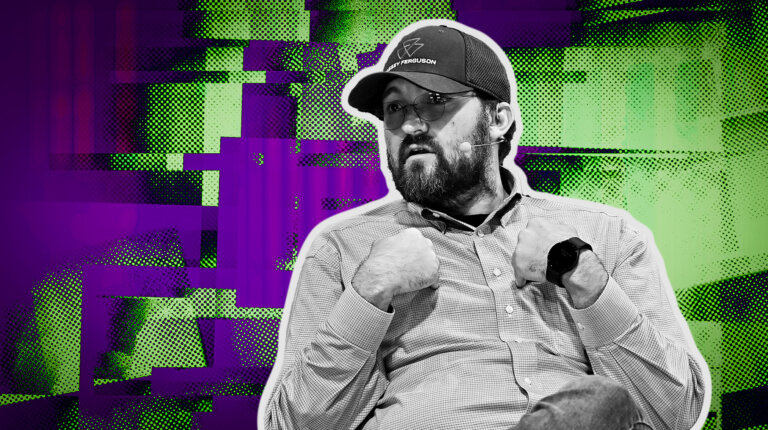 Hoskinson: Cardano has a ‘beautiful plan’ for ZK-rollups
Hoskinson: Cardano has a ‘beautiful plan’ for ZK-rollups Hoskinson: Cardano has a ‘beautiful plan’ for ZK-rollups
Charles Hoskinson teased the rollout of ZK-rollup technology on Cardano, saying more will follow later.

Web Summit / CC BY 2.0 / Wikimedia. Remixed by CryptoSlate
Input Output CEO Charles Hoskinson teased the rollout of ZK-rollups on Cardano.
During an AMA, Hoskinson was asked why there was not “much chatter” about ZK-rollups on the Cardano blockchain.
In response, he said the scaling technology is being incorporated in relation to the Midnight sidechain. More details will follow later, Hoskinson said.
What are ZK-rollups?
ZK-rollups refer to a technology that takes hundreds of transactions off the main chain, validates each using zero-knowledge proof, then batches them into a single transaction – which the main chain can verify using a SNARK (Short Non-Interactive Argument for Knowledge).
Zero-knowledge is an authentication method that enables the sender to prove something is true without sending passwords, keys, or other sensitive information to the receiver.
The process of batching transactions takes the computation load of the main chain, resulting in greater speed, with the zero-knowledge aspect providing validation.
ZK-rollups are typically associated with Ethereum, which relies heavily on layer 2 scaling solutions to lessen base layer congestion and provide other benefits such as higher throughput, better security, and privacy features.
Coming soon to Cardano Midnight
On ZK-rollups for Cardano, Hoskinson said:
“There’s a huge wonderful, beautiful plan for it, and it’s heavily related to Midnight. We shall talk about it at later date.”
Midnight is a privacy-focused Cardano sidechain, enabling developers to build “data protection-first dApps” without fear of data breaches or censorship.
“[It] safeguards sensitive commercial and personal data, protecting fundamental freedoms of association, commerce, and expression for developers, companies, and individuals.”
Although Hoskinson did not expand further on exactly how ZK-rollups will be utilized, the mention of Midnight suggests it would be in the capacity of authenticating private data securely – rather than for scaling.



 Farside Investors
Farside Investors 


 CoinGlass
CoinGlass 



































































































